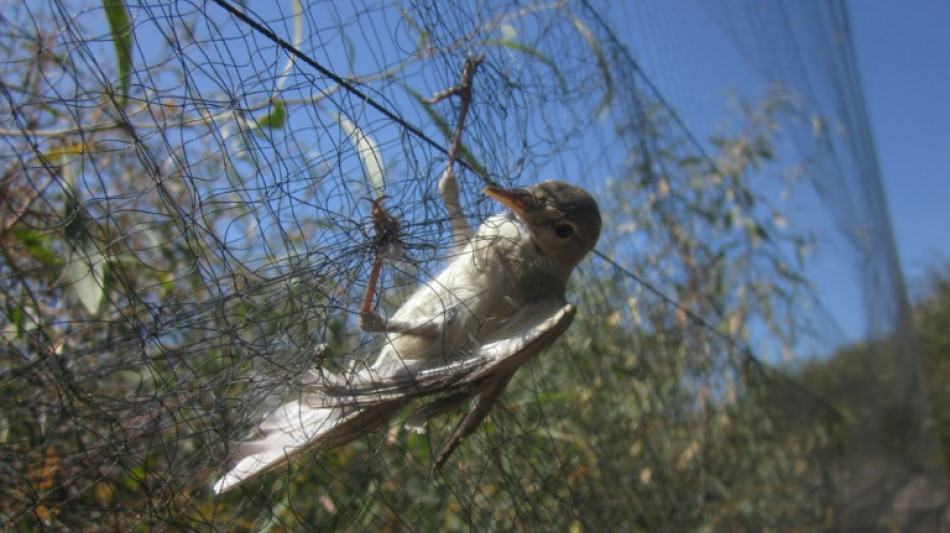

BirdLife Cyprus sees 'worrying' spike in migratory bird killings
Conservation group BirdLife Cyprus reported Wednesday a "worrying increase" in illegal bird trappings last year, blaming authorities for reducing fines for killing protected species.
"This sadly comes as no surprise, following a shameful relaxation of the Cyprus bird-protection law in December 2020," the group said in a statement.
It has systematically monitored bird trapping levels for the past 20 years in the Republic of Cyprus and a British military base area on the Mediterranean island.
Its autumn 2021 report showed a big increase in trapping levels with so-called "mist nets" within the survey areas compared to 2020.
Autumn is when trappers target migratory birds, especially Blackcaps and other migrant songbirds.
Late last year, activity using mist nets -- which are barely visible and designed to entangle the birds -- was 132 percent higher than for autumn 2020.
At Dhekelia, a British base area, mist netting activity showed an increase of 46 percent from 2020.
Last year's increase is similar to the past four years but significantly lower than the peak 2016 trapping season when 2.3 million songbirds were killed.
- 'Troubling trend' -
"These recorded trapping levels amount to just over 600,000 birds that might have been illegally trapped and killed in the autumn of 2021 within the survey areas," said BirdLife Cyprus.
"This troubling increasing trend in trapping activity comes after a series of retrograde steps on a policy level that sent a general message of decriminalising bird trapping."
It said fines that were reduced from 2,000 euros (about $2,200) to 200 euros "are non-deterrent and non-punitive, and clearly not proportionate to the profit one would make by illegally selling these birds".
The illicit trade in migratory birds is estimated at 15 million euros per year, although it has been illegal for decades. Critics blame lax enforcement.
In a letter to the Cyprus government last October, the European Commission expressed concern and urged Nicosia to annul this law amendment and restore the fines starting at 2,000 euros.
"The state's objective should be the protection and conservation of our natural heritage, starting from re-instating a strict and deterrent law," said the group.
"Cyprus is very likely to be taken to the EU Court of Justice for the insufficient protection of migratory birds, as highlighted in the Commission's letter."
D.Vasquez--LGdM



